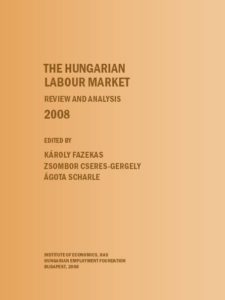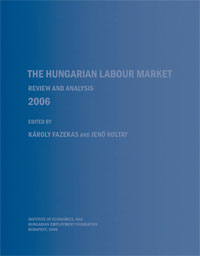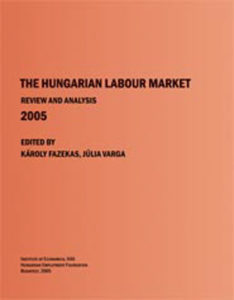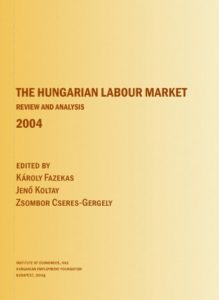 Download publication
Download publication
THE HUNGARIAN LABOUR MARKET - REVIEW AND ANALYSIS 2008 Fazekas Károly, Cseres-Gergely Zsombor, Scharle Ágota
The series of our labour market yearbooks was launched with the goal of reviewing the main developments in the Hungarian labour market annuallyand of giving an in-depth analysis of selected issues. The “In Focus” analysis are based on up-to-date results of empirical studies carried out in different fields of the Hungarian labour market. The selection criteria for the topics of these chapters were determined by the editorial board of the yearbook. Two basic principles are followed: the chosen subjects must have crucial relevance for policy making and the authors must be equipped with solid empirical evidence to produce a detailed description of social and economic developments and to reveal causality relations between the outcomes and the determinant factors. The first chapter presents the main labour market trends in Hungary in 2007 which include participation, employment and unemployment rates and information on wages. The second part of this volume presents analyses of the labour supply implications of welfare provisions. The third part presents an evaluation of the impact of active labour market programmes in the period 2001-2006, and summarizes the main changes in labour market policies and institutions during and after 2007. The closing part presents a comprehensive collection of statistical data on the Hungarian labour market.
Tartalom
A könyv letölthető:
egy file-ként pdf-ben vagy fejezetenként:
Table of Contents and Foreword by the EditorsLabour market trends in Hungary 2007In Focus: Social Welfare and Labour SupplyEvaluation of active labour market programmes between 2001-2006 and the main changes in 2007Statistical dataIndex of Tables and Figures
The book was annotated in the Journal of Economic Literature: Vol. 47 No. 2 (June 2009) p. 558-559.






